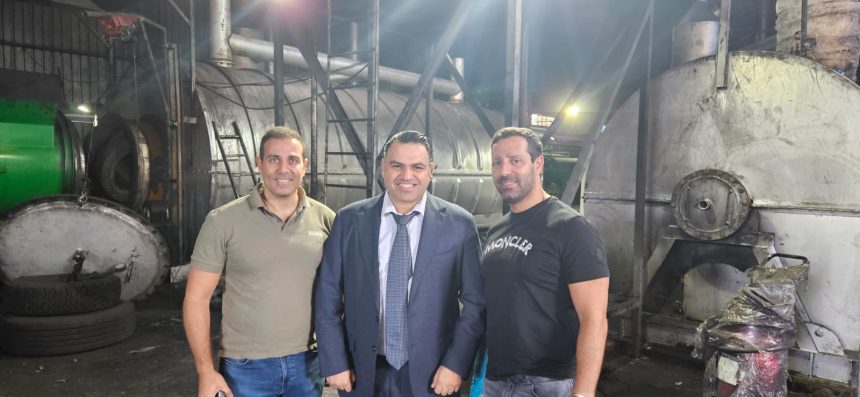Lebanon’s waste management challenges are well-known, particularly in the northern city of Tripoli, where rapid urbanization and insufficient infrastructure have led to longstanding environmental issues. LIMS launched the Private Initiative to Service Municipalities (PRISM) advocacy campaign in 2023, beginning with a town hall meeting at the Chamber of Commerce, Industry & Agriculture of Tripoli & North. This meeting brought together the chamber president, municipal leaders, and local businesses to explore how the private sector could effectively bridge gaps in essential public services, particularly in waste management and electricity.
In 2024, Tripoli Municipality and Lavajet, a private waste management firm, joined forces with the Chamber to clean the Abou Ali River. This river, historically plagued by pollution, benefited from waste removal efforts initiated through this partnership, marking a significant step toward a cleaner environment and laid the groundwork for more sustainable waste solutions within the city.
PRISM developed a comprehensive pamphlet in August 2024 building on insights from the 2023 meetings. This guide offered actionable strategies for municipalities and businesses navigating Lebanon’s legal landscape to enable private sector delivery of essential services. The pamphlet highlighted the benefits of collecting waste directly from sources—homes, businesses, and restaurants—rather than relying on bins in the streets. This approach introduces a self-sustaining model where households are responsible of their waste, while private companies collecting waste profit by selling recyclable materials to specialized processors.
In September 2024, Tripoli Municipality and Lavajet, with support from the Chamber, removed public bins from high-traffic Dam and Farez Street. Instead, local restaurants are now served by a direct collection model, where waste is gathered from the establishment. This shift reduced street pollution and prevented scavengers from rummaging through bins—a common practice that leaves waste scattered on streets.
As the initiative progressed, LIMS facilitated additional meetings with the concerned stakeholders to explore the expansion of this direct-collection model to households. In this next phase, janitors would deliver waste directly to garbage trucks, reducing waste accumulation in public spaces. By fostering partnerships that integrate private sector efficiency with municipal oversight, PRISM has helped set the foundation for a model that could be replicated in other regions facing similar issues.
Beyond environmental benefits, these changes offer significant economic advantages. Cleaner streets boost business foot traffic, offering a more inviting and healthier environment for clients and employees alike. PRISM’s approach underscores the potential of private sector collaboration to elevate essential services, fostering a cleaner, healthier, and more economically vibrant Tripoli.

